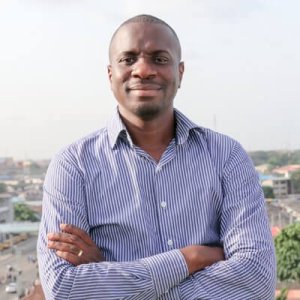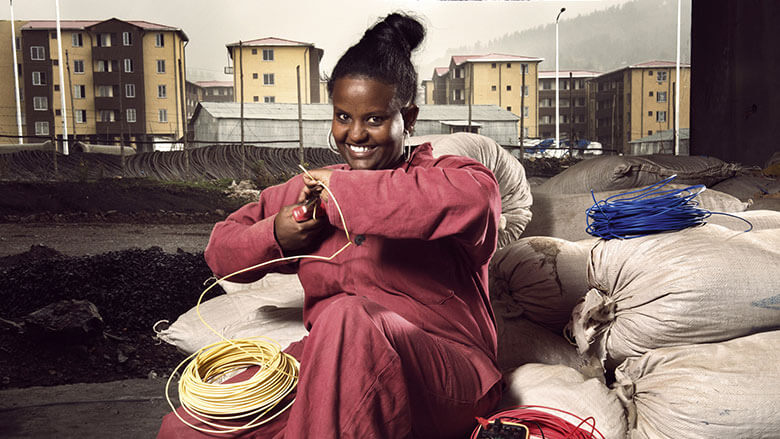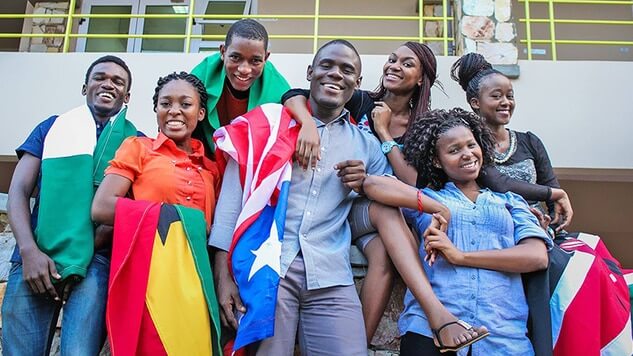This post is inspired by a Facebook post by Victor Asemota where in reference to Africa he said:
“The problem was that our education was meant to keep us subservient and not to become the masters of our fate. We were meant to learn and become civil servants.”
Twelve years ago, when I finished my term as Director for Africa at AIESEC International, I had the choice to take up an internship at any of the many multinationals (PWC, Cadbury Schweppes, DHL, ABN AMRO, Electrolux, etc.) that AIESEC had a relationship with.
I had the leadership profile they needed, was already on first-name basis with some of their senior managers, and was from a region they sorely needed talent in.
I instead chose to intern at a small UK education consultancy, Bryanston Square, led by the visionary Marcus Orlovsky.
You see, my sojourn (that’s what I called it) to Europe was partly in a bid to understand why my continent was behind on many levels.
At that time and still, now, I was certain that our education system was a major culprit for why Africa (& Nigeria) was less able to meet the aspiration of its teeming population, compared to every other continent.
I needed to prove my theory, and the opportunity to work in the British education system would give me first-hand insight into the education system around which the Nigerian system was modelled by the colonialists who brought formal western schooling.
After my internship with Bryanston Square, I worked at the UK’s foremost social innovation centre, The Young Foundation where a team was working on a new model for the secondary school, Studio Schools, that prioritised context as a means of engaging young people in how they learn from the world.
Working in and around the education system, researching alternative models of education, and speaking to a range of intellectuals working in the space, I came to realise that even the British had multiple education systems designed to perpetuate its class system (a story for another day!!!).
More importantly, I realised the UK’s education system was nothing like ours in Nigeria.
- They had a system that evolved. Ours was static. Despite numerous changes — in the knowledge of how people learn, in national priority, in global dynamics, in technology, etc. — our education remained the same to the point of decline. We still focus on rote learning — cram and pour. We still glorify Mathematics and English as the king of subjects, ultimately turning a foreign language into a measure of intelligence. We get punished for speaking our native language in school because it’s “vernacular”. We make tiny cosmetic changes like giving schools computers without actually touching the core of a rotting system from the foundation.
- They had a system that was designed for the outcomes they choose. When the British wanted just the elite to know, they focused on private education (ironically called public schools). When they needed workers for their factories, they educated for workers. When they needed bureaucrats and administrators to run the colonies, they educated for that. Now they are training for the information age.
- We were content with the outcomes the colonialists had when they gave us our education system without questioning if those were the outcome we wanted for ourselves.
The outcome of the colonial education system was clear.
Create a docile following who knows enough (read & write) to engage as employees but not enough (critical thinking) to challenge & change the status quo.
Little wonder a huge chunk of the class that led the African independence movement in the 50s & 60 (Azikiwe, Nkrumah, Kenyatta, Nyerere, Olympio, etc.) met in Europe as students. They were exposed to the missing ingredient — critical reasoning.
Unfortunately, our first leaders used this awareness to (partially) liberate their people from the colonialist, then used the flawed education system against their people for their selfish ends.
As I continue to work on how to fundamentally transform Nigeria & Africa personally, and through our work at the Co-Creation Hub, I am left more with questions than answers, especially when it comes to our education system.
I strongly believe our work should be finding the right answers to these questions if Africa is to truly rise sustainably.
Some of my questions include:
- What outcome do we really want as a continent, and how can we fashion the education system that helps us deliver this?
- Have we even been able to articulate what we need now and what our needs would be in the future?
Is our education system geared towards that aspiration?
- What is the future of our education system and country when we have a system where the worst students become our teachers and educators?
- What is the role of identity in our education when we were teaching a colonial version of history till history teaching was scrapped (in Nigeria) from our curriculum?
- How do we help the emerging generations learn from our past mistakes if we have zero-tuition on our post-colonial history?
vii. Is it worth educating students in our many neglected courses (sociology, philosophy, etc. sorry if you studied this) when they only end up working in the marketing department of banks or in customer service?
viii. How do we even develop and deliver these foundational intellectual courses (sociology, philosophy, etc. yes, the same ones) within mental models that resonate with our culture rather than through a Western lens?
- How do we deliver education to the highest level in our native language, even if just to instil a sense of pride?
“It is why the Kings of the day and the affluent people did not leave their kids behind at home to learn. They too knew that there was a flaw”
The discerning few who can afford it end up sending the children abroad, by any means necessary including stealing & corruption, to get a proper education.
While this may work for a few, it is not scalable.
To achieve scale in producing the type of citizens that will enable Africa rise to its potential as a continent, not eternally dependent on foreign aid (our stolen wealth partially returned in the guise of charity), we need a total overhaul of our education systems.
Until we do this, we will continue to succeed individually while failing as a collective.
I personally am tired of Africa being the butthole of the world and butt of all its jokes.
In concluding, Victor pointed out some of the brooding questions like; “Is our education system geared towards that aspiration?” and most importantly; “What outcome do we really want as a continent, and how can we fashion the education system that helps us deliver this?”
Share your thoughts with us, let us learn from one another.
This article was first published on Medium by the author; Femi Longe



